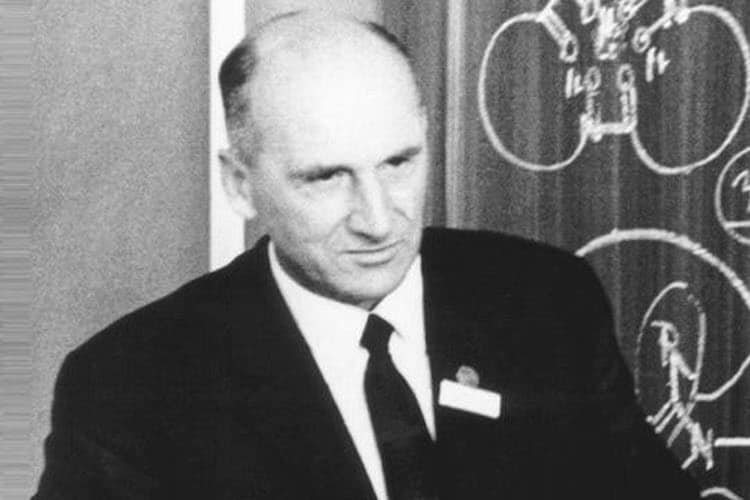Vladimir Prelog: Master of Stereochemistry and Nobel Laureate

Vladimir Prelog (23 July 1906 – 7 January 1998) was a Croatian-Swiss organic chemist. He received the 1975 Nobel Prize in chemistry.
Life and Career
Vladimir Prelog was born on 23 July 1906, in Sarajevo. He displayed an early interest in science and pursued his passion for chemistry during his studies at the Czech Technical University in Prague. Prelog later continued his education at the Swiss Federal Institute of Technology (ETH Zurich), where he earned his doctorate in 1930.
Throughout his career, Vladimir Prelog made significant contributions to the field of organic chemistry. He is best known for his work on the stereochemistry of organic molecules. Prelog’s research focused on the three-dimensional arrangement of atoms within molecules and how these arrangements influence chemical reactions and properties.
Prelog’s groundbreaking research on the stereochemistry of natural products, such as terpenes and alkaloids, advanced the understanding of their biological activities and paved the way for the development of new pharmaceuticals. His contributions continue to be instrumental in various scientific fields, including drug development and the synthesis of complex molecules.
He served as a professor at ETH Zurich, where he mentored and inspired numerous students who went on to become leading figures in the field of chemistry. Vladimir Prelog passed away on 7 January 1998, in Zurich, Switzerland.
Award and Legacy
In 1975, Vladimir Prelog was awarded the Nobel Prize in Chemistry for his seminal work on the stereochemistry of molecules and his contributions to the understanding of chemical reactions. His contributions to stereochemistry have had a lasting impact on the design and synthesis of complex molecules, contributing to advancements in medicinal chemistry, drug development, and various other fields.
Vladimir Prelog’s enduring legacy lies in his pioneering research on stereochemistry and his contributions to the understanding of chemical reactions. His work has had a profound impact on the field of organic chemistry, inspiring generations of chemists and shaping the development of new pharmaceuticals and chemical compounds.
Observer Voice is the one stop site for National, International news, Sports, Editor’s Choice, Art/culture contents, Quotes and much more. We also cover historical contents. Historical contents includes World History, Indian History, and what happened today. The website also covers Entertainment across the India and World.

